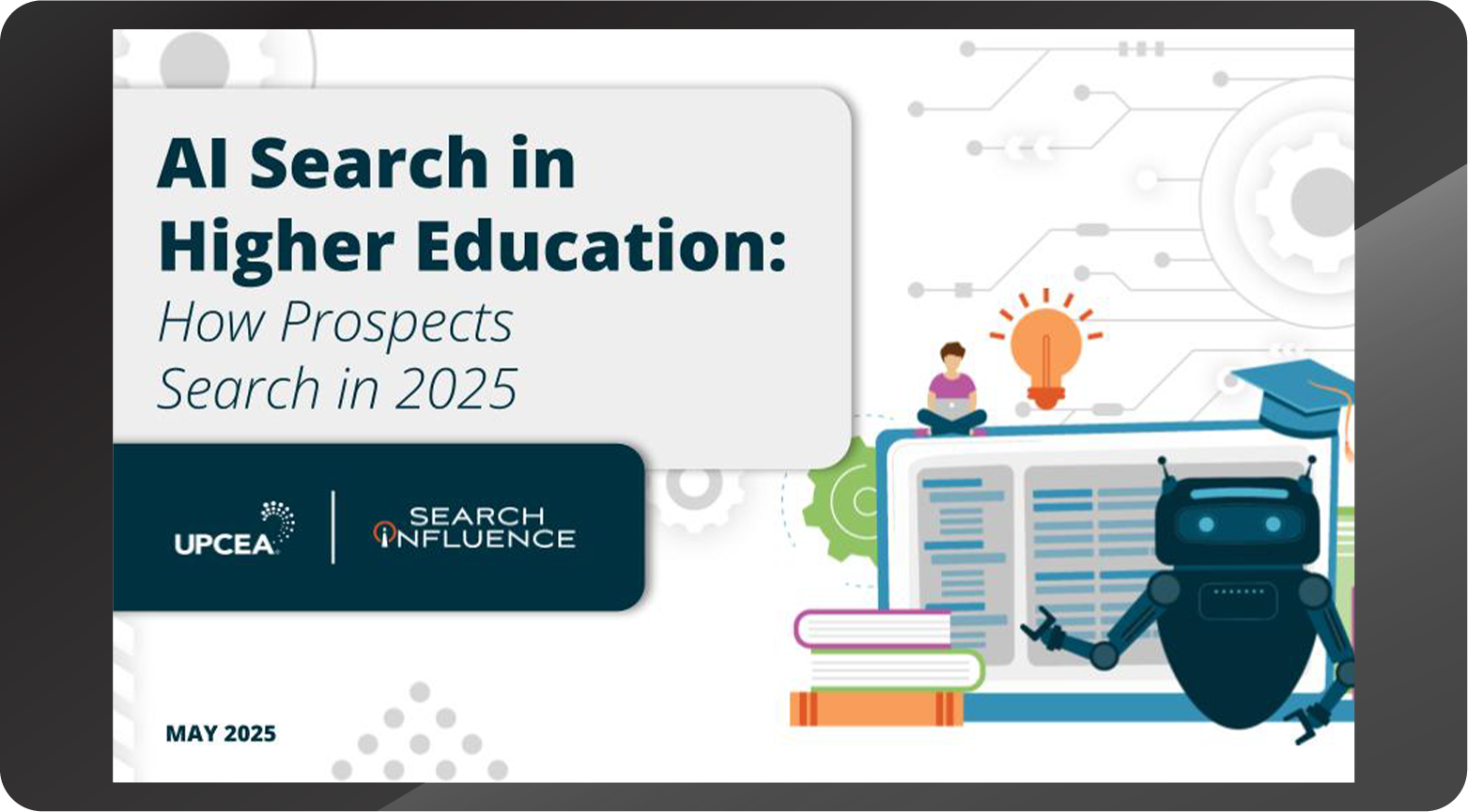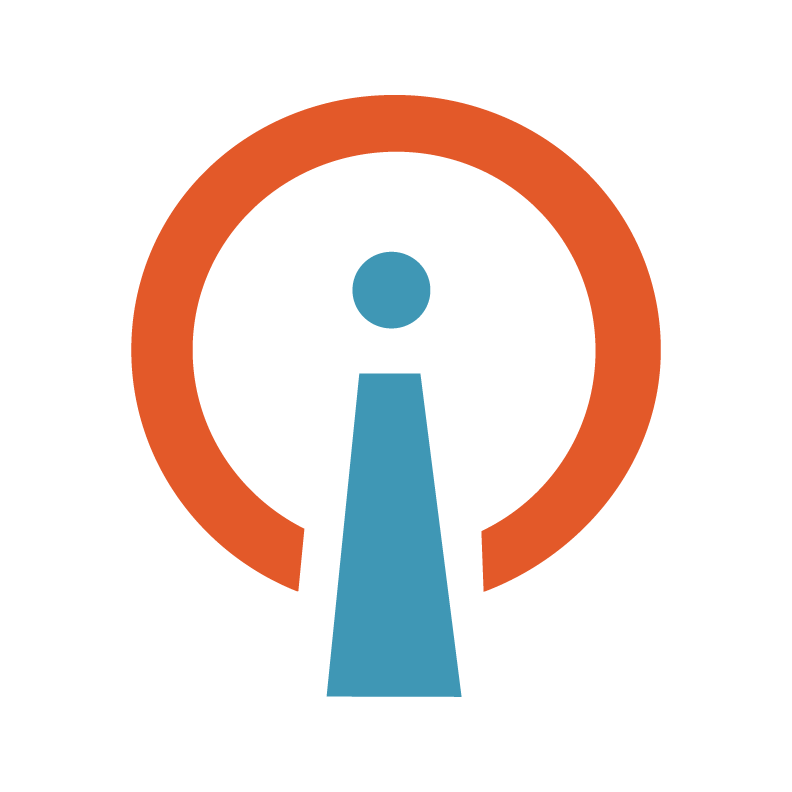
NEW ORLEANS, La., October 13, 2025 – 50 percent of prospective students now use AI-powered search tools at least weekly, making artificial intelligence a critical first step in discovering and evaluating higher education programs. The 2025 AI Search in Higher Education Research Study, conducted by UPCEA, the Online and Professional Education Association, and higher education SEO agency Search Influence, reveals how AI, traditional search engines, and university websites shape the student decision-making journey.
Although AI use is on the rise, student trust still favors direct information from traditional search engines and university websites. In total, 77 percent of respondents consider university websites the most reliable source, while AI tools and other platforms are gaining credibility; 79 percent read Google’s AI-generated overviews, and 56 percent are more likely to trust institutions cited in them. Institutions that optimize for AI-driven search can capture attention early and connect prospects with trusted content, gaining a competitive edge.
Other key findings from the research include:
- Page one still matters: 82 percent of prospects are more likely to consider programs that appear on the first page of results.
- Search is diversifying: 84 percent use search engines, 61 percent use YouTube, and 50 percent use AI tools as they would Google.
- AI credibility is rising: 32 per cent of prospects trust AI tools for program research
“These findings confirm what we see every day. Without visibility in AI search, institutions risk being overlooked,” said Paula French, director at AI SEO agency Search Influence. “Strong SEO and AI-focused strategies are the connective tissue linking prospects from search results to trusted university websites and, ultimately, to enrollment decisions.”
“This research shows that AI-powered search is transforming how students discover programs and rewriting the enrollment playbook,” added Bruce Etter, senior director of research and consulting at UPCEA. “Colleges and universities that adapt their visibility and messaging to this shift will be the ones that succeed in connecting with the next generation of learners, which is imperative as more institutions view online education as the avenue to balancing institutional books.”
The study was conducted in March 2025 and surveyed 760 qualified adults between the ages of 18 and 60. Participants represented diverse educational and employment backgrounds, making the results broadly applicable to institutions focused on adult learners.
The release of this research comes at a pivotal time for higher education marketers. As students move fluidly between AI platforms, search engines, and video-based resources such as YouTube, institutions must ensure their content performs across platforms, so their programs appear where prospects search most often.
The 2025 AI Search in Higher Education Research Study is now available to download. A companion webinar on October 23 and a series of AI Search Strategy Labs (October 28 and 30) will offer additional insights and tactical recommendations. Registration details are available here.
About Search Influence:
Search Influence is an AI SEO-focused higher education digital marketing agency that helps institutions drive prospects into and through the recruitment funnel with analytics-backed strategies, including organic and AI SEO and paid digital advertising. Founded in 2006, Search Influence’s core purpose is to optimize potential. The agency collaborates with institutions nationally and in its home city of New Orleans. Clients include: Tulane University, Tufts University College, LSU Online & Continuing Ed, and Maine College of Art & Design. Search Influence experts frequently speak at higher ed and industry conferences, and the agency’s work has earned recognition from the US Search Awards, US Agency Awards, and Inc. 5000.
About UPCEA:
UPCEA is the online and professional education association. Its members continuously reinvent higher education, positively impacting millions of lives. The association proudly leads and supports them through cutting-edge research, professional development, networking and mentorship, conferences and seminars, and stakeholder advocacy. Its collaborative, entrepreneurial community brings together decision makers and influencers in education, industry, research, and policy interested in improving educational access and outcomes.

